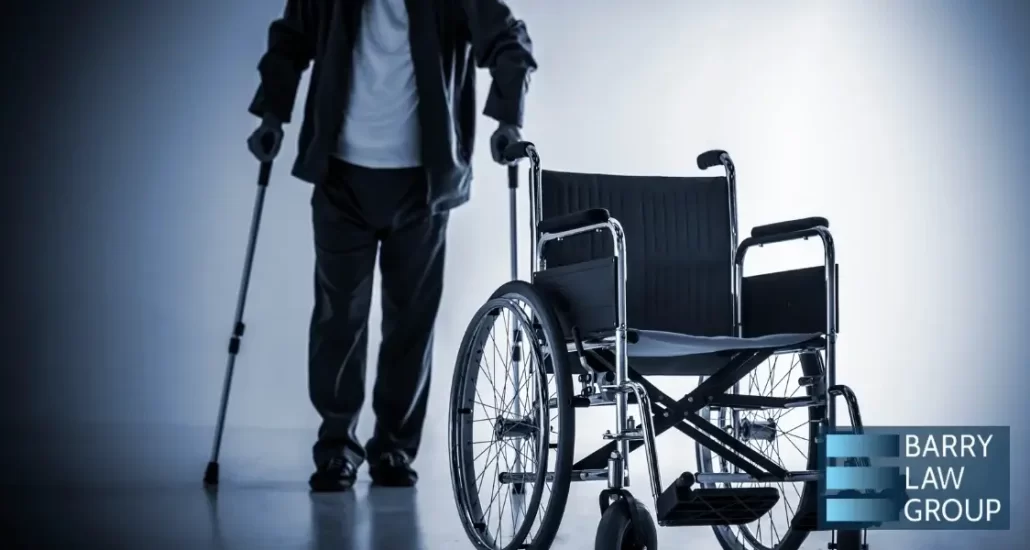California Permanent Disability Benefits – All You Need to Know

Each state has its own laws that govern disability benefits, and California is no different. Being permanently disabled, no matter the circumstances, can be devastating. Therefore, you should know your rights and the laws surrounding California permanent disability benefits. The more you know, the better you can prepare for a consultation with a lawyer to defend your rights.
Most recently, the state has updated its disability policy, which addresses disability unemployment and mental health disabilities. Currently, 10.6% of Californians are disabled, and oftentimes, Social Security benefits are inadequate for providing housing and other expenses, which presents the need for individuals to fight for what they need.
What Is Considered a Permanent Disability?
A permanent disability is any injury, condition, or illness that can greatly impact your ability to engage in day-to-day activities or work. A permanent disability, in medical terms, is considered to be when a person reaches maximum medical improvement (MMI). It means your condition will not get better, even though it may not get worse. Permanent disabilities are calculated using a percentage, which determines your benefits and ability to obtain work.
Permanent Disability Benefits in California
If you are permanently disabled at work in California, there are several things you should know. To obtain benefits, you must meet certain criteria that are substantiated by a licensed medical professional, as well as provide clear evidence of the date of the event and the circumstances surrounding the event that caused the disability.
If you have an illness or injury that is not getting better and you hope to obtain benefits, you can expect:
- To have the extent of your impairment evaluated by a qualified medical evaluator (QME). This is typically a doctor who will determine how your personal injury, illness, or condition, such as an amputation injury or vision loss, affects your ability to work.
- Your level of impairment to be recorded as a percentage that will be used in a formula along with your age and other factors, which is crucial for determining benefits like disability pension.
- Your mental illness or psychiatric injury is limited to catastrophic events or direct violence, which can often be seen in workplace incidents such as a factory worker accident or a construction accident.
- Your physician to create a permanent and stationary (P&S) report that provides a score for your level of disability, a critical step in seeking compensation through workers’ compensation or holding negligent parties accountable under premises liability laws.
- A judge or a disability evaluator to use the formula to make calculations that determine your benefit amount, ensuring that those impacted by workplace injuries, including cases of workplace wrongful death, receive the support they deserve.
You should also know that you have rights. Not only do you have the right to obtain all medical records and reports, but you also have the right to object to the P&S report or benefit amount. Your lawyer can be an invaluable asset in helping you defend yourself and advocate for you.
What Happens if You Are Denied Benefits
Sometimes, a P&S score or evaluation comes back and determines that your benefits will not be enough to cover the lifelong expenses related to your illness or injury. If this happens, you have options. First, the Division of Workers’ Compensation within the California Department of Industrial Relations handles disagreements with doctors’ reports.
Currently, the maximum weekly benefit rate for a permanent disability is $290 a week, but the exact percentage you may receive is based on your specific case. For some illnesses, this may be adequate, while for others, it may be insufficient. Therefore, if you find that your award benefits do not cover your expenses, you should consult with a lawyer to address this gap.
Non-Work-Related Permanent Disability
Sometimes, permanent damage is not caused at work. A person may be injured in a car accident, a slip and fall at a place of business, or have a chronic illness that results in a permanent disability. If this is your situation, you can file for State Disability Insurance (SDI) for a short-term solution or for Social Security Income (SSI) for a longer-term solution. SDI benefits are paid for up to 52 weeks.
FAQs
Q: How Long Does Permanent Disability Last in California?
A: Permanent disability benefits can last a lifetime or just weeks, depending on the case. In most cases, a person can only get permanent disability benefits if they are considered 100% disabled based on professional reports. Your lawyer is an excellent resource for helping you determine how much you may receive based on your circumstances.
Q: What Are the Requirements for Permanent Disability in California?
A: The requirements for permanent disability in California include proving the date of your injury or illness, the extent of your disability, and proof of your inability to work or engage in daily activities. To prove permanent disability in California, your doctor, who is a QMI, will create a report showing the extent of your condition, as well as a P&S report.
Q: How Do You Get 100% Permanent Disability?
A: Getting 100% permanent disability in California is not easy. First, you must prove 100% disability with clear medical evidence, including how it impacts your ability to work. Individuals who typically receive 100% permanent disability are military veterans who may have amputations or other severe impairments, but not always. If you can prove a 100% permanent disability, you may earn benefits for a lifetime.
Q: What Is the Max for Permanent Disability?
A: According to the most recent data, the maximum rate for permanent disability is $290 per week, while the minimum is $160 per week. Moreover, you may receive a percentage of between 1 and 99% of your income, depending on the amount. You should consult with your lawyer to understand the full scope of permanent disability rates in California.
Contact Barry Law Group Today
Knowing is half of the battle when it comes to permanent disability benefits in California. Therefore, you should consider hiring a lawyer if you are confused about any step of the application process or are uncertain about what to do if you are denied benefits. California’s permanent disability laws tend to change, and it is important to ensure you stay abreast of the most recent laws.
To learn more about the permanent disability laws in California or for help with an ongoing case, contact a lawyer at Barry Law Group today.
Success of Your
Legal Matter.
Barry Law Group is comprised of attorneys and longtime staff members who are committed to the success of your legal matter. The firm understands that for most litigation is uncharted worrisome and often terrifying.



